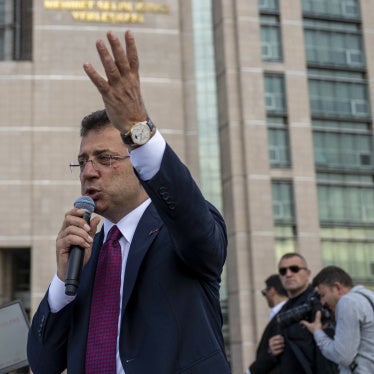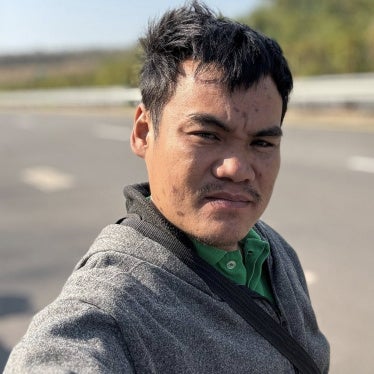We greatly appreciate the General Assembly’s record of support for UN action to address North Korea’s terrible human rights record, in particular, member states’ overwhelming responses to the recent groundbreaking report of a UN commission of inquiry on North Korea.
We hope members states can now maintain this positive record by co-sponsoring the latest draft UNGA resolution—along with the EU, Japan, and other interested countries—and ensuring that this year’s resolution adequately reflects the findings and recommendations of the UN Human Rights Council (HRC) mandated commission of inquiry report on the DPRK, and the UN HRC’s subsequent resolution. A strong UNGA resolution is necessary to maintain the momentum generated by this year’s report of the UN commission of inquiry—a report which shed much-needed light on a terrible human rights situation in one of the darkest corners of the world.
The commission of inquiry’s report represents a turning point in the world’s understanding of the human rights situation in the DPRK. Following the compilation of extensive information about the human rights situation in the DPRK, which included over 240 confidential interviews, the commission’s report concluded that crimes against humanity, such as extermination, murder, enslavement, torture, imprisonment, rape, and forced starvation, had been committed according to policies established by the highest level of the state.
The report further acknowledges the obligation to prosecute those responsible for the crimes in question and that the DPRK is “unwilling to implement its international obligation to prosecute and bring the perpetrators to justice, because those perpetrators act in accordance with State policy.”
Given the reality of pervasive impunity, the report underscored that “the United Nations must ensure that those responsible for crimes against humanity [in the DPRK] are held accountable,” including through the referral by the UN Security Council to the International Criminal Court or the establishment of an ad hoc tribunal by the UN.[1] The commission further recommended that the UN Security Council adopt targeted sanctions against those who appear to be most responsible for crimes against humanity.[2]
The report’s findings support the inescapable conclusion that blame for the human rights abuses committed on a massive scale in the DPRK rests squarely on the shoulders of the government. There can be no expectation of accountability for these crimes when those responsible for realizing justice are themselves responsible for their commission. The international community bears the responsibility of protecting the people of the DPRK given the government’s failure to do so.
The March 2014 UN HRC resolution, which was concluded following the presentation of the commission’s findings to the HRC earlier this year, reflects this reality. It recommends that the UN Security Council consider referral of the situation in the DPRK “to the appropriate criminal justice mechanism.”[3] This was important step. We believe that maintaining a link between the UN Security Council and the issue of accountability is essential to pave the way for concrete action on holding perpetrators to account in the future. The credible threat of accountability can help shift behavior among those with leverage over the government to press Pyongyang to change its human rights policies over time.
In this regard, we take note of the recent Arria formula meeting on the commission’s report, which was attended by most Council members—with the exception of China and Russia—at which Security Council members benefitted from an informal briefing of all three commissioners. We were encouraged by the statements made by a number of governments, including Chile, the UK, Australia, France, Lithuania, Luxembourg, the US, and Rwanda, all of which underscored the importance of accountability for the crimes documented in the report and favored Council consideration of the options to that end.
We view the informal Arria formula meeting as an important step forward that should mark the beginning, and not the end, of the Council’s attention to the human rights situation in the DPRK. The Council’s sustained engagement, as a formal part of its agenda of work, is essential and a prerequisite to any concrete action to address the dire human rights situation and pursue accountability.
We continue to urge UN Security Council members to use informal opportunities on the Council’s agenda to raise the importance of formal discussion of the human rights situation—a necessary cornerstone for any discussion of accountability—to help build a climate that supports its realization.
The upcoming UNGA resolution on the DPRK offers a key opportunity to send a message to the Security Council on behalf of the wider UN membership that the human rights situation in the DPRK —and accountability for violators of the worst atrocities—must be a factor on the council’s agenda moving forward.
Recommended language for the upcoming resolution
With respect to the text of the resolution, we recommend that the UNGA text should mirror paragraphs 5-7 of A/HRC/RES/25/25 at a minimum, and specifically:
- Acknowledge that the commission’s body of findings provides reasonable grounds to believe that crimes against humanity have been committed in the DPRK, for decades, pursuant to policies established at the highest levels of the State (OP 5);
- Underscore the DPRK’s obligation to prosecute those responsible, while emphasizing that the authorities of the DPRK have failed to do so and encouraging members of the international community to cooperate with accountability efforts to ensure these crimes do not go unpunished (OP 6); and
- Recommend that the UN Security Council:
- Formally discuss the commission of inquiry’s report and take appropriate action, including through consideration of referral of the situation in the DPRK to the appropriate international criminal justice mechanism to ensure that those responsible for human rights violations, including those that may amount to crimes against humanity, are held to account;
- Consider the scope for effective targeted sanctions against those who appear to be most responsible for crimes against humanity, taking into account the relevant conclusions and recommendations of the commission of inquiry (OP 7).
We note that in paragraph 10 of A/HRC/RES/25/25, the UN HRC requested the UN Office of the High Commissioner for Human Rights (OHCHR) continue gathering information to follow-up on the commission’s recommendations through the establishment of a field-based structure, the location of which will be in Seoul, Republic of Korea. It would be helpful for the UNGA resolution to:
- Welcome the decision to establish an OHCHR field office to continue the work of the commission; and
- Condemn very troubling statements made by DPRK officials threatening “punishment” should the OHCHR go ahead with its plans.[4]
[1] UN Human Rights Council, Report of the commission of inquiry on human rights in the Democratic People’s Republic of Korea, A/HRC/25/63, 7 February 2014, para 87 (“commission of inquiry report”)
[2] Commission of inquiry report, para 93(a).
[3] Human Rights Council, “Situation of human rights in the Democratic People’s Republic of Korea,” Resolution 25/25, A/HRC/Res/25/25, para 7.
[4] James Pearson, “North Korea threatens ‘plot-breeding’ U.N. rights office with ‘punishment’, Reuters, June 9, 2014 (accessed June 10, 2014), http://www.reuters.com/article/2014/06/09/us-northkorea-rights-idUSKBN0EK0PG20140609.








